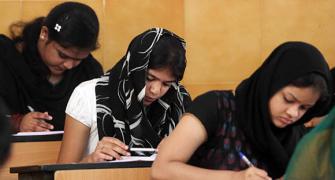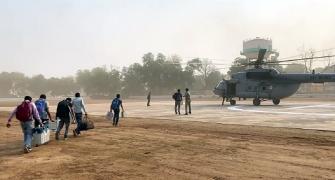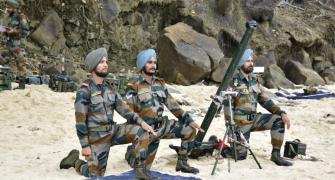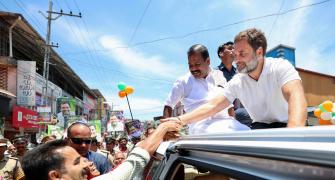Civil Services is about staying aware, having a keen eye towards detail, understanding and retention, says Akriti Mattu.
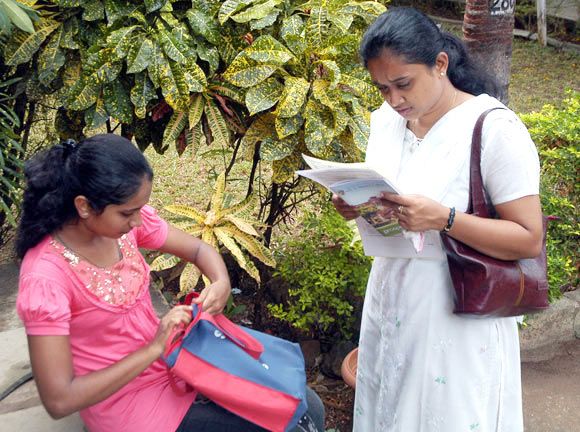
The Union Public Service Commission is one of the most coveted and competitive examinations in the country.
Lakhs of students appear for the examination each year for a few thousand vacancies.
The preliminary exam for Civil Services 2017 is scheduled for June 18.
At this point, most aspirants tend to commit some mistakes that could cost them a precious year.
In the last few days before the exam, watch out for these trivial mistakes that can cost you dear.
Revision
Revision is a crucial component of Civil Services preparation that aspirants ignore.
All the hard work put in the previous few months will be futile if the last few days before the exam are not utilised properly.
Dedicated hours of revision each day will go a long way in helping you crack the preliminary stage. So revise till the last hour.
Mock tests
It is expected that aspirants invest the last few months in attempting mock tests. That is how one's overall level of preparation gets evaluated.
Solving more mock tests even in the last days will be beneficial.
It is equally important that you evaluate your performance in these tests.
Make sure you learn from your mistakes and perform better with every mock test attempted.
Previous year's papers
A lot of Civil Services aspirants (especially first timers) browse through previous year's papers and memorise responses. This approach will be detrimental.
Going through past year's papers is important but not at the final stage. Ideally, you should have referred it at the beginning of preparation.
I would like to make one thing very clear here -- UPSC loves to spring up surprises. A question will never be repeated.
Only the type of questions asked might be repeated.
New topics
At this crucial hour, the subject matter prepared should be retained, revised and mastered. No new topics ought to be touched.
Amplify and strengthen all the content that you already know. It will help you score better.
Intruding to new territories will reduce your chances to stay confident and perform well.
Archives of The Hindu
The Hindu is the single most important resource for current affairs in Civil Services examination.
Any aspirant who must have read the paper thoroughly throughout his preparation will surely stay aware of all the predominant national and international events.
Also, the aspirant would be able to connect news to general studies more efficiently. However if you have missed out on issues, do not stack them up and start preparing events at this point in time.
This will prove disastrous for aspirants.
Rote learing
Civil Services is about staying aware, having a keen eye towards detail, understanding and retention.
Blind rote learning of topics across subjects and current affairs will surely wreak havoc in the exam.
The UPSC isn’t testing you on your rote learning capacity. It is testing you on your understanding and its implementation in solving questions.
CSAT
Paper II of Civil Services (popularly known as CSAT, although not an official term) is ignored by aspirants owing to its qualifying nature.
Candidates ought to remember that CSAT is not an easy paper. It is not always the marks that count.
It is surprising, how each year, many aspirants fail to get the minimum qualifying score for GS Paper II.
Strategy for attempts
Strategising attempts and pre-deciding how many questions to solve in the exam is not only foolish but dangerous.
How can an aspirant possibly know how many questions to attempt before seeing the question paper?
Once you attempt the exam, decide for yourself the questions that are surely to be attempted and the questions to opt out of.
Make sure you do not lose out to negative marking due to random guessing.
Discussion with fellow aspirants
Try not losing precious time in discussing what you expect out of the exam and how challenging it might get.
Prevent yourself from the negativity that past year unsuccessful candidates might throw at you.
The last few days before the exam should be filled with optimism and confidence.
Excessive panic
The fact that Civil Services is one of the most ruthless exams of India makes it natural for aspirants to get a little panicky.
However, too much nervousness and panic will make you lose your self esteem. This will affect your performance in the exam.
Stay composed. Maybe, meditate a little and surround yourself with inspiring thoughts.
Besides the above things, there are a few other things you need to keep in mind during the exam.
Avoid random guessing. Avoid thinking that guessing the correct answer will get you marks. Instead maximise your efforts and solve more questions you are confident of. Random guessing has never done any aspirant good.
Do not spend too much time on Comprehension in Paper – II. Aspirants should not read the passage more than two times. Your reading speed along with accuracy will matter here. Do not commit the blunder of leaving a passage in between, moving on to the next question and then spending the same amount of time again re-attempting it. Reading Comprehension is to be attempted in one go.
Not attempting questions from Quantitative Aptitude and Reasoning first. General Studies Paper II is a qualifying exam. Make sure you score the minimal marks required by attempting Quantitative Aptitude and Reasoning questions before English. Once you are confident that you’ve at least attempted the questions that will help you get the desired score, move on to the remaining questions.
Not filling OMR sheet on time. No matter how well you perform in the exam, if you leave the OMR (optical mark reading) sheet incomplete, all your efforts will be in vain. So spare the last 15 minutes of the exam in filling the circles, especially in GS Paper II.
The author of this write-up, Akriti Mattu is digital marketing lead from Mockbank, a Bengaluru based portal catering to job search/exam preparation needs of aspirants. Akriti qualified Civil Services but chose a different stream professionally.
Lead image used for representational purposes only. Image: Sahil Salvi



